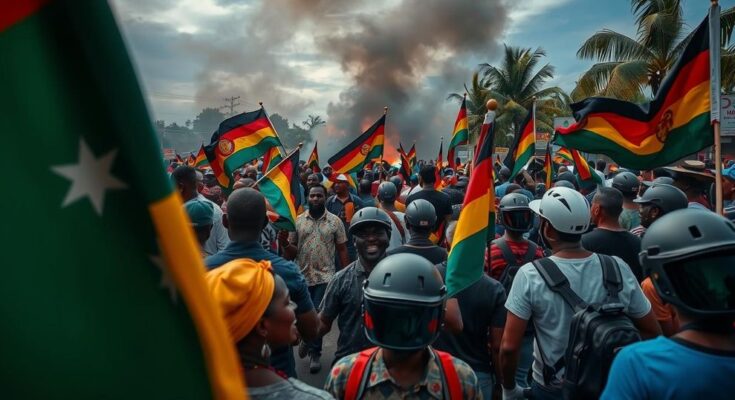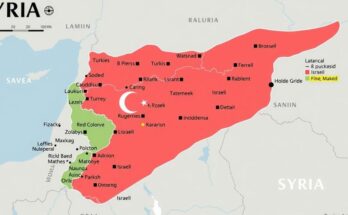The unrest in Mozambique following the recent elections has resulted in at least 11 fatalities, including Silvio Jeremias, who was shot during protests against alleged electoral fraud favoring the ruling Frelimo party. Human Rights Watch reports widespread violence, while Podemos, the main opposition party, challenges the election results amid calls for political reform. Opposition figures have been targeted, heightening concerns about safety and justice in the political arena.
On October 25, in the capital city of Maputo, Mozambique, Silvio Jeremias was tragically killed during protests against the recent election results. The ruling political party, Frelimo, led by Daniel Chapo, reportedly received 70.7% of the votes, thereby maintaining its long-standing control over the nation since independence in 1975. However, this election was marred by serious allegations of electoral manipulation and vote rigging. Frequent protests erupted as citizens expressed their dissatisfaction, leading to violent encounters with law enforcement. Human Rights Watch has reported that at least 11 individuals were killed and 50 others sustained injuries from gunfire amid the unrest. Police claimed that they only discharged live ammunition into the air to disperse crowds, yet accounts indicate that one woman was fatally shot due to “stray bullets” in a chaotic scene where opposition party supporters attempted to retrieve a firearm from the police. Mozambique, burdened by severe poverty and a predominantly young demographic, is witnessing a significant shift in political sentiment against Frelimo. The main challenger in the recent elections, Venâncio Mondlane of the Podemos party, has garnered substantial support from younger voters and claims to have won 53% of the vote. However, the official electoral body reported that Frelimo increased its representation in parliament, igniting further claims of extensive electoral fraud, including the registration of fictitious voters and ballot tampering, criticized by both civil society and international observers. Amid this tumultuous climate, the tragic killing of both a lawyer and a political official prior to the election raises alarms regarding the safety of opposition figures. Human rights advocates have pointed to a disturbing trend of violence against critics of the government, with many cases remaining unresolved. As mourners gathered to pay tribute to Jeremias, their mourning transformed into passionate demands for accountability and political reform. Demonstrators poignantly expressed their commitment to democracy, defiantly stating, “You can kill me but don’t kill democracy.” The ongoing unrest illustrates a society grappling with deep political dissatisfaction and the urgent demand for change amid allegations of corruption and violence.
The political landscape in Mozambique has been fraught with challenges since the country gained independence from colonial rule in 1975. The Frelimo party, which has been in power for nearly five decades, faces increasing criticism and opposition, particularly from the younger populace who feel disenchanted with the status quo. Recent elections have highlighted significant allegations of electoral mismanagement, further straining relations between the ruling party and opposition groups. The dynamics of voter registration, transparency in the electoral process, and the safety of political activists remain major concerns, reflecting a broader context of human rights issues that have emerged in the nation. International observers and local civil society organizations have raised serious questions about the validity of the election results, claiming that the integrity of the democratic process is under severe threat. As the country moves forward, the implications of these violent protests and electoral disputes could have profound consequences on Mozambique’s political future.
The tragic events following the recent election in Mozambique have underscored the growing discontent among citizens, particularly the youth, regarding the long-standing rule of the Frelimo party. The allegations of electoral fraud alongside instances of violence against protestors and politicians signify a critical juncture in the nation’s pursuit of democracy and justice. As the death toll rises and calls for accountability intensify, Mozambique may well be on the precipice of significant political change as its citizens demand a more representative government that honors the principles of democracy.
Original Source: www.theguardian.com




